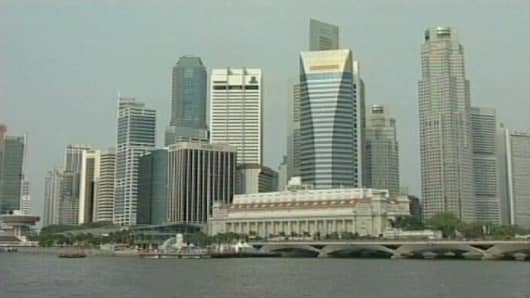Asian stocks had a shaky performance Wednesday with markets drifting back and forth for most of the session, but ending mainly lower as credit worries and fears over the health of the U.S. economy lingered.
The U.S. dollar was little moved near a record low against the euro and a three-year low against the yen ahead of more data expected to show the U.S. economy remained weak in February.
Japan's Nikkei 225 Average ended a tad lower as worse-than-expected company spending data dampened investor confidence about the health of the domestic economy. Strong gains in Fast Retailing on an upbeat earnings outlook and trading houses like Marubeni Corp were offset by falls in financials such as Mitsubishi UFJ Financial Group on a darkening economic outlook and lingering global credit market jitters. Japanese companies cut spending on plant and equipment more than expected in the final quarter of 2007 compared with a year earlier, pointing to a downward revision to GDP and underlining views that the Bank of Japan will leave interest rates on hold for some time.


